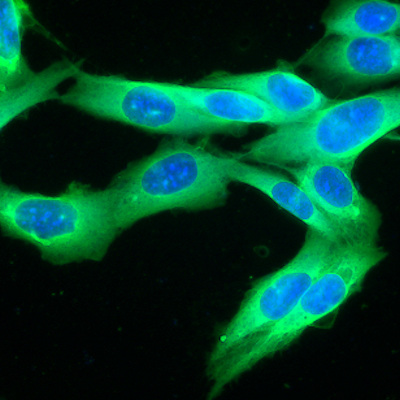August 15, 2022 -- University College Dublin researchers have provided a new mechanism for observing cell migration with a high-throughput spheroid-based migration assay. The assay uses a tissue-mimicking, fibrillar collagen type I extracellular matrix (ECM).
The orientation of fibrillar collagen is crucial for cellular processes and mediates metastasis through contact guidance. However, understanding how cells migrate on aligned collagen fibrils requires in vitro assays with reproducible and standardized orientation of collagen fibrils on the macro-to-nanoscale. The researchers quantified the migration of highly proliferating U2OS osteosarcoma cell spheroids onto an aligned fibrillar type I collagen matrix (SLAS Technology, August 1, 2022, Vol. 27:4, pp. 267-275).
They found cell dissemination from the spheroid was polarized with increased invasion in the direction of fibril alignment. Cell dissemination had an aspect ratio of 1.2 ± 0.1 and an angle of maximum invasion distance of 5° ± 44° relative to the direction of collagen fibril alignment.
Their assay can be applied to any fully automated imaging and analysis pipeline for assessing tumor cell migration with high throughput screening, they added.
Copyright © 2022 scienceboard.net









